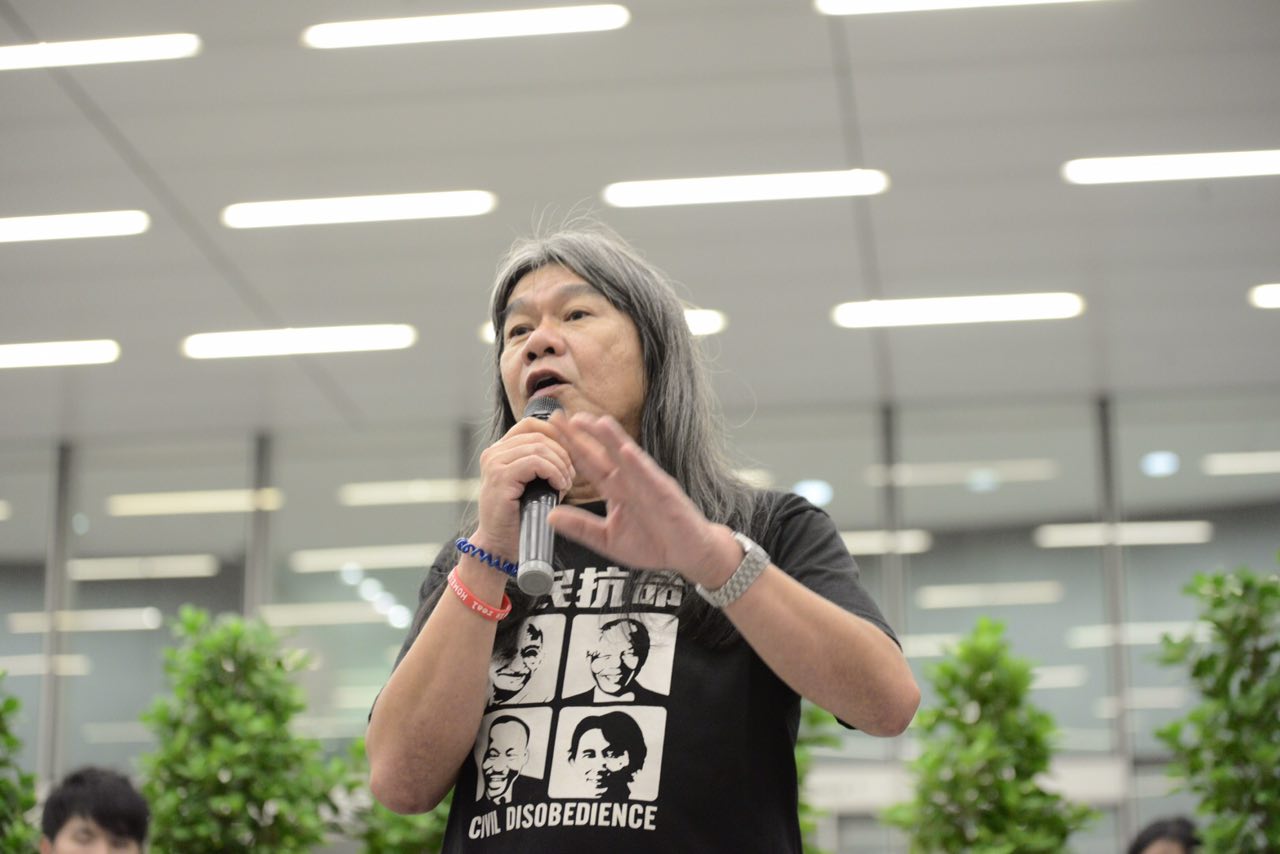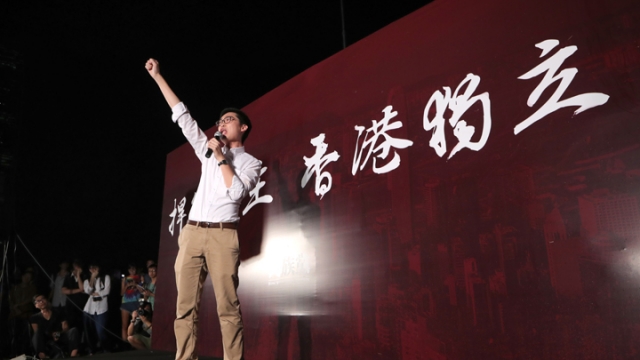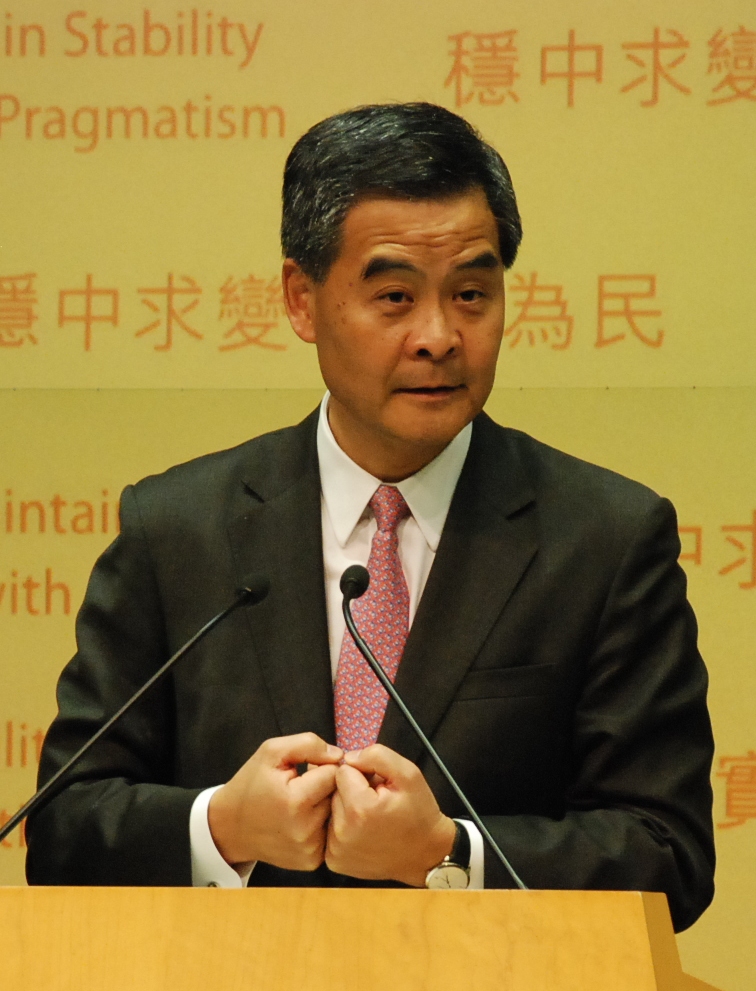by Brian Hioe
語言:
English
Photo Credit: Youngspiration/Facebook
WITH THE Hong Kong government deciding that its purge of Hong Kong lawmakers will not stop with localists Yau Wai-Ching and Baggio Leung of Youngspiration by filing a lawsuit that would disqualify a total of four pan-Democratic lawmakers, it is likely that this represents that Beijing has decided to clamp down on elections in Hong Kong for good. Although the lawsuit was filed by Hong Kong Chief Executive CY Leung, in line with the appeal of the Hong Kong judiciary to Beijing for an interpretation of the Hong Kong Basic Law, this is in all probability the Hong Kong government carrying out the dictates of Beijing from afar.
Lawmakers targeted are Lau Siu-Lai, Nathan Law, Edward Yiu Chung-yim, and Leung “Long Hair” Kwok-hung. Like the Youngspiration duo, Lau and Law are newly elected lawmakers that originate from post-Umbrella movement activism in Hong Kong, Law being a member of Joshua Wong’s Demosistō political party. However, with the removal of “Long Hair”, a prominent member of the pan-Democratic camp for many years, both old and new lawmakers are being targeted by Beijing.
 Leung “Long Hair” Kwok-hung. Photo credit: Youngspiration
Leung “Long Hair” Kwok-hung. Photo credit: Youngspiration
It is possible that eleven more lawmakers may be targeted by lawsuits. Since Hong Kong’s Legislative Council only has 70 seats, this means that close to one-fourth of Hong Kong’s lawmakers may be removed from office. Many of these are democratically-elected lawmakers, although some may hail from corporate-appointed functional constituencies. It is also to be questioned if Beijing will seek to disqualify pan-Democratic members of the 1,200 member Chief Executive Election Committee which is to elect Hong Kong’s Chief Executive in the coming months.
So much for the last remnants of democracy in Hong Kong, then. Purging elected lawmakers comes at the end of the gradual siphoning away of democratic freedoms in Hong Kong which we observed during the process of 2016 LegCo elections. This began with electoral candidates not being allowed to run for office, then with elected lawmakers not being allowed to take office through oath taking, and finally with elected lawmakers being removed from positions they have already been sworn into.
All of these occasions were hailed as marking the death of “One Country, Two Systems” by commentators, but perhaps there is finally no ambiguity on the matter. Hong Kong’s legal system can no longer be counted on to provide some way of carving out autonomy from China. While lawsuits against pan-Democratic lawmakers are still ongoing, at the end of the day, the dictates of Beijing override any Hong Kong laws.
 Edward Leung of Hong Kong Indigenous. Photo credit: Apple Daily
Edward Leung of Hong Kong Indigenous. Photo credit: Apple Daily
Nevertheless, it is in some way to be questioned what exactly China is aiming at here. Directly interfering in Hong Kong’s elections and tearing down the last vestiges of democracy in Hong Kong could quite predictably lead to strong reactions from the Hong Kong population. A second Umbrella Movement does not seem impossible, seeing as the outbreak of the original Umbrella Movement was precisely motivated by the decision of China’s Standing Committee of the National People’s Congress to change the process of 2016 elections in order for it to have a say in which candidates were allowed to run for office in Hong Kong.
With regards to “One Country, Two Systems”, China probably never had any intention of allowing Hong Kong to keep its system of government intact until 2047 from the beginning. This can be observed in the gradual decline in democratic freedoms in Hong Kong since the 1997 handover.
China’s aims in facilitating the the end of “One Country, Two Systems” and moving towards “One Country, One System” would be because China currently fears that allowing any of the territories it considers as part of its greater autonomy will lead to China fragmenting. In addition to its apprehension about an insurgent Hong Kong and a de facto independent Taiwan, China has the pressing fear that restive outer Chinese regions such as Tibet and Xinjiang will also manage to break away.
China most likely believed its chances of accomplishing the integration of Hong Kong into China would decline if it actually waited until 2047 to start making changes to Hong Kong’s governmental system. Similarly, China was previously afraid of changing Hong Kong’s governmental system because it needed Hong Kong’s economic prosperity for its future growth, and it feared changing Hong Kong’s governmental system could have a negative impact on trade. But while Hong Kong continues to have an economy larger than many nation-states, despite being just a city, the economic rise of China has made China less fearful of killing the golden goose where Hong Kong is concerned.
However, it is to be questioned how exactly China ever meant to integrate Hong Kong into the rest of China. China is not a democratic country, but after people have democratic freedoms, they usually do not take it sitting down when those freedoms are taken away. Again, that China did not wait to start siphoning away Hong Kong’s democratic freedoms in the relatively short 19 years since the 1997 handover probably indicates that China wants to get the process of integration done as quickly as possible, in the hopes that doing it quickly will be as painless as can be. If this is successful, perhaps China would later seek to apply the same model of integration to Taiwan down the line, much like how the formula “One Country, Two Systems” was originally developed to lure in Taiwan. Although it would be a vaguely absurd idea to think that this would be possible, China tends to think of all of its would-be-independent territories within the same frame.
Yet, as indicated by the rise of Hong Kong independence from a marginal position during the Umbrella Movement to one which is now rocking the very foundations of Hong Kong politics, China’s attempts at cracking down on Hong Kong have in many cases fanned the flames of dissent against it by coming in with an iron fist when a velvet glove approach may have been more tactful. This has also caused the Hong Kong people to be less and less disillusioned about the fact that the Hong Kong government acts as an intermediary of Beijing and that pro-Beijing lawmakers are primarily motivated by China’s interests, rather than those of Hong Kong.
 CY Leung. Photo credit: Public Domain
CY Leung. Photo credit: Public Domain
Indeed, some from the pro-Beijing camp have seen China’s attempts at cracking down on democratic freedoms in Hong Kong as so self-undermining that they would accuse Hong Kong Chief Executive CY Leung of secretly being pro-independence, an absurd claim given that CY Leung has acted as China’s loyal enforcer throughout this process. It may be because of attacks from not only the pan-Democratic camp, but also the pro-Beijing camp that Leung has abruptly decided not to run for reelection for Chief Executive of Hong Kong in 2017.
As such, removals of Hong Kong lawmakers could in fact permanently cost Beijing. Beijing has no recourse now except to rule by force in refusing the Hong Kong people’s democratic representation, or to inspire terror in the Hong Kong populace to keep them in line through engineered incidents like the kidnappings of Hong Kong booksellers who published books critical of China. However, in doing this, Beijing will only drive the Hong Kong people further and further from it, having permanently taken off the table options aimed at winning over the loyalty of the Hong Kong people apart from forceful ones. In that respect, there is really no going back for Beijing now that it has decided to fundamentally overturn Hong Kong’s system of government.

